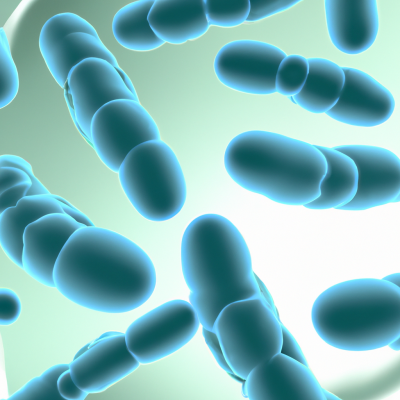Understanding Gut Health
Gut health is a very common concern that Gillian Killiner, our 121 gut specialist award winning Dietitian is asked to assess by Drs, Consultants, AHPs and patients who self-refer. She treats many every day, whether it be through online consultations or face-to-face in her clinic.
If you’re not familiar with the concept of gut health, don’t worry! It’s a broad topic that encompasses various aspects related to different parts of the body, in addition to the gut itself and in the next few blogs we hope to cover these areas in more detail so you can get a better understanding.
Gut Bacteria
The gut microbiota, also known as gastrointestinal bacteria, is a diverse community of microorganisms that reside primarily in a part of the large bowel known as the colon, which is part of the digestive tract.
This community includes bacteria, viruses, fungi, and other single-celled organisms. The gut microbiota plays a crucial role in various aspects of human health, and its composition can vary among individuals.
A healthy gut not only strengthens our immune system but also supports the well-being of essential organs like the heart and brain. Moreover, it positively influences mood, fostering happiness and satisfaction.
We know that when the gut is not balanced health is compromised at many levels.
How are we able to assess our gut bacteria?
Research into gut bacteria has been conducted since the invention of the microscope around 1665. Over the past 30 years, there has been a significant leap in this field, thanks to the sequencing of small molecules of life, including DNA and eventually RNA.

What is Gut Health?
The term “Gut health” is the umbrella term for various health conditions including :
- GERD
- Irritable bowel syndrome
- Hemorrhoids
- Coeliac disease
- Gallstones
- Constipation
- Diverticulitis
- Gastritis
- Ulcers
- Colorectal cancer
- Diarrhoea
- Gastrointestinal infections
- Liver disease
- Pancreatitis
- Esophageal cancer
- Gastroparesis
Years of research and work in practice link these conditions to our gut bacteria whether as a direct cause, preventative or used as a treatment.
In addition extensive research has also been linking the vital organs like brain, heart, liver, skin to our gut bacteria and how imbalances in the gut microbiota can lead to increased intestinal permeability or “leaky gut,” allowing harmful substances to enter the systemic circulation and burdening liver function.
We know the health of our skin is closely linked to our gut health due to their shared immune system involvement. Research indicates that disruptions in the balance of intestinal flora may contribute to skin conditions like acne, eczema, psoriasis, rosacea, and dermatitis.
The gut-brain axis is a bidirectional communication system between the brain and the GI tract. Treating the gut can directly assist mental health and well-being.
Our Gut Health Programme is adapted to suit all gut health issues and more.
Dietitian's Role in Managing Digestive Disorders
A dietitian plays a crucial role in managing digestive disorders by providing tailored nutritional guidance to alleviate symptoms, promote digestive health, and improve overall well-being.
Our 121 Gut Health Programme has helped thousands of people not only regain control of their bowel symptoms and health but also improve their sleep, mental clarity, weight and other health issues.
How does 121 Dietitian work to improve Gut Health?
At 121 Dietitian we work closely with other healthcare professionals to aid in the diagnosis and treatment of digestive disorders.
We perform detailed individual assessments take a deep dive into the detail in our 60-minute consultation before writing up a detailed bespoke plan, supplement and lifestyle protocol. Before attending an appointment, our patients are required to log in to our online Portal to complete our background questionnaire and Food and Symptoms Diary. This part of the programme is completely free of charge and allows one of our specialist dietitians to direct you to select the correct programme.
The programme includes a 30-minute review to ensure the programme has been successful and provide further nutritional advice and guidance as part of the programme requirements.

How a Specialist Dietitian can fix your Gut...
Specialist gastrointestinal Dietitian Gillian Killiner brings her 26 years of dietetic experience to help each patient she sees. Her deep dive is extensive – here are just some of the areas covered….
Fibre Management
We guide patients on appropriate fibre intake, considering the type and amount of fibre that can aid in digestion without causing discomfort.
Food Allergies and Intolerances
We identify and address food allergies or intolerances that may contribute to digestive issues.
Recommend suitable alternatives to replace problematic foods.
Hydration
We emphasise the importance of adequate hydration, as it plays a vital role in digestive health. Provide guidance on choosing beverages that support hydration without exacerbating symptoms.
Probiotics and Prebiotics
We discuss the benefits of probiotics and prebiotics in maintaining a healthy gut microbiome.
Recommend specific foods or supplements that can promote the growth of beneficial gut bacteria.
Monitoring and Adjustments
We monitor our patient’s progress and make necessary adjustments to the dietary plan.
Collaborate with other healthcare professionals to ensure a holistic approach to managing digestive disorders.
Weight Management
We address weight-related concerns, as excessive weight or rapid weight loss can impact digestive health. Provide guidance on achieving and maintaining a healthy weight through balanced nutrition.
Our Combined Weight Loss and Gut Health programme is a super popular choice.
Behavioural Changes
Encourage mindful eating habits and stress management techniques, as stress can significantly impact digestive function.
If you want to book your programme TODAY we would love to help you.
You can book a 121 Dietitian Programme today by clicking on the link below
Links included in this description might be Amazon affiliate links. If you purchase a product or service with the links that I provide I may receive a small commission.


